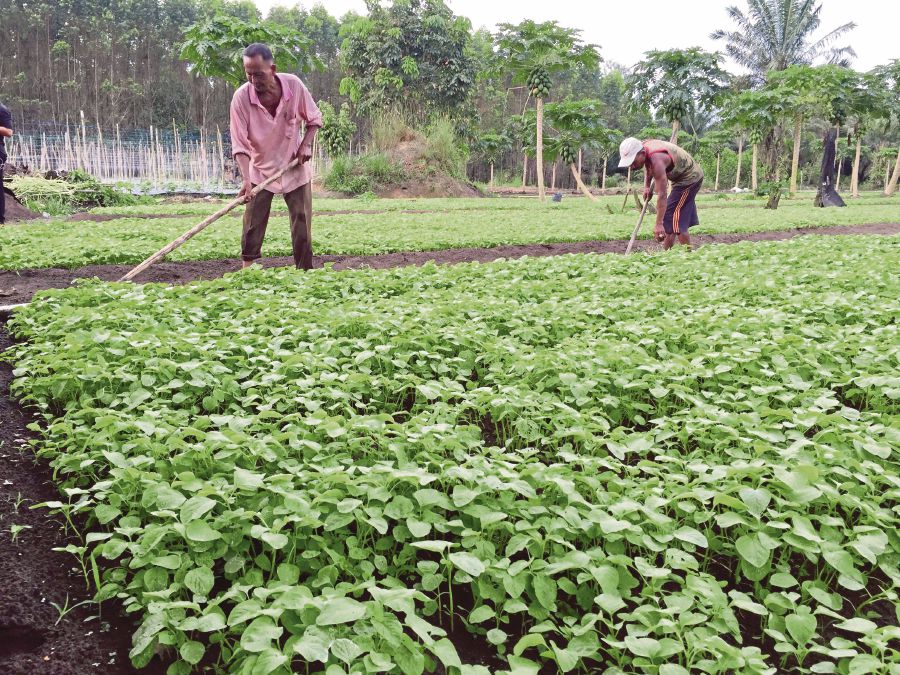However, considerable changes in the characteristics of the agricultural sector have occurred, both domestically in Malaysia and internationally in other countries, which now demand different strategies and approaches to the development. Some of the core drivers for the changes can be recognised, and these will mould the current and future characteristics of the sector.
These include, among others, trade liberalisation and globalisation, urbanisation, technological developments, changing consumer taste and behaviour, environmental consideration, climate change and shift in the market power to large players in processing, distribution and retailing in particular.
Today’s employers also require graduates to be competent not only in the primary production of agriculture, but also in the secondary production, that is, distribution, processing, promotion and consumer satisfaction.
Traditional agricultural education was focused on increasing production to sustain a growing and increasingly urban and industrial population.
With the changes, the crucial areas of expertise now encompass not just those trained in production agriculture, but also food and nutrition, natural resources, and the know-how to maintain and improve the physical and scientific infrastructure that underlies modern agriculture, including the increased role of information and communications technology (ICT).
Also, to be in a position to compete in the global markets of the 21st century, the food and agricultural education system must be expanded and strengthened to address the challenges and opportunities facing the global food system.
Thus, the scope of the curriculum has to consider the above changes, and must include courses and training in agricultural philosophy of sustainable and optimisation of resources, well-versed in technical agriculture, competent in business and economics to tackle the problems of global competition, competent in ICT, and have entrepreneurship attributes.
The graduates must also possess the right combination of technical skills and personal attributes, including confidence in their ability to solve problems and address challenges, as well as their ability to work as a team.
Hence, internally, the curriculum must link theoretical and practical instruction. Externally, they must link their curriculum to workforce and community needs.
On this note, other than one semester of industrial training, Universiti Putra Malaysia (UPM) has introduced 2u2i (two years in the university and two years in the industry) mode for the Bachelor of Science in Plantation Management.
Beyond producing competent agricultural workforce, education institutions must also train graduates who are capable of generating their own employment.
This can be achieved, among others, as in UPM, through entrepreneurship incubation programme to produce agricultural entrepreneurs.
Participants are selected mainly from newly graduated degree-holders in agriculture and related disciplines, who have an inclination towards entrepreneurship.
They are incubated, where at the end of the incubation period, successful participants would have their own companies. During the incubation, participants will be trained in the practices of agrifood business, with emphasis on the application of business plan, management and marketing methods.
As parts of the training, the participants are required to plan, budget and successfully operate a “start-up company”. Throughout the incubation programme, participants receive guidance and tutelage from various experts in the university, the private sectors through “mentor-mentee” programme and support from relevant government agencies.
In order to expand the pool of young people who might consider a career in agricultural field, more should be done to teach children in elementary and secondary schools as well about the basic facts of food and agriculture in a way that holds their attention and interest.
If basic knowledge about food and agriculture becomes more widely held, there will be opportunities to hold on to the interest of more of these students as they move through higher secondary school and into university and college.
It has been recognised that agricultural education has been an essential factor in the success of agricultural development. Hence, agricultural training institutes, including universities and colleges, must be responsive to the changes as their prime task is to ensure that education and training is market-driven, and graduates are industry-ready and have the capability to add value to the agricultural sector, society, and, ultimately, nation-building.
Source: New Straits Times | 8 July 2017














